MEDIA TOOLS
A team of world-class scientists will grow potatoes under Martian conditions in a bid to save millions of lives.
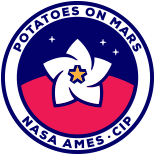
MEDIA TOOLS
A team of world-class scientists will grow potatoes under Martian conditions in a bid to save millions of lives.
Lima, Peru, December 18, 2015: A team of world-class scientists will grow potatoes under Martian conditions in a bid to save millions of lives. The experiment, led by the International Potato Center (CIP) and NASA, is a major step towards building a controlled dome on Mars capable of farming the invaluable crop in order to demonstrate that potatoes can be grown in the most inhospitable environments…
March 8, 2017 — Lima (Peru) The International Potato Center (CIP) launched a series of experiments to discover if potatoes can grow under Mars atmospheric conditions and thereby prove they are also able to grow in extreme climates on Earth. This Phase Two effort of CIP’s proof of concept experiment to grow potatoes in simulated Martian conditions began on February 14, 2016 when a tuber was planted in a specially constructed CubeSat contained environment built by engineers from University of Engineering and Technology (UTEC) in Lima based upon designs and advice provided by the National Aeronautics and Space Administration in Ames Research Center (NASA ARC), California. Preliminary results are positive..
View full Press Release(Spanish version)
An experiment conducted by researchers at the International Potato Center (CIP) to determine whether potatoes could be grown on Mars not only produced encouraging results for proposals to put people on the Red Planet, it also provided valuable information for CIP’s efforts to help farmers produce food on this planet’s marginal lands…
There are over 4,000 edible varieties of potato, mostly found in the Andes of South America. Potato is the third most important food crop in the world after rice and wheat in terms of human consumption. More than a billion people worldwide eat potato, and global total crop production exceeds 300 million metric tons.
The International Potato Center, known by its Spanish acronym CIP, was founded in 1971 as a root and tuber research-for-development institution delivering sustainable solutions to the pressing world problems of hunger, poverty, and the degradation of natural resources. CIP is headquartered in Lima, Peru and has offices in 20 developing countries across Asia, Africa, and Latin America. CIP seeks to achieve food security, increased well-being, and gender equity for poor people in the developing world. CIP furthers its mission through rigorous research, innovation in science and technology, and capacity strengthening regarding root and tuber farming and food systems.
CIP is part of the CGIAR Consortium, a global partnership that unites organizations engaged in research for a food secure future. CGIAR research is dedicated to reducing rural poverty, increasing food security, improving human health and nutrition, and ensuring more sustainable management of natural resources. Donors include individual countries, major foundations, and international entities.
The soil in La Joya Pampas-a sector of the Atacama Desert in southern Peru that’s considered one of the driest places on earth-is very similar to that found on the Red Planet.
The scientists plan to transport 200 pounds (100 kilos) of it to a CIP laboratory in Lima that will simulate the complex Martian atmosphere-which contains mostly carbon dioxide-and expose it to extreme ultraviolet radiation.
“We’ll have more concrete results in one or two years, Valdivia said, adding that it will take more than five years to launch an unmanned mission to Mars. The potential future space crop is also one of the oldest.
Records of potato cultivation date back to 2500 BC, when the indigenous Aymara Indians farmed it in modern-day Peru and Bolivia. If the varieties selected for next month’s experiment don’t adapt to the desert soil, the researchers will introduce nutrients and subject them to radiation.
The Potato on Mars team is a cross-disciplinary cohort of CIP and NASA scientists representing the fields of agriculture,
plant breeding, astrobiology, medicine, and physics. Together they are exploring how to grow potatoes on Mars while simultaneously benefiting Farmers of Earth.
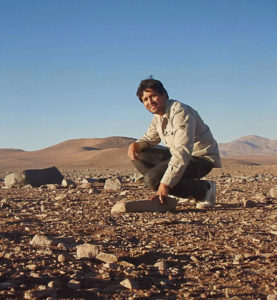
Julio E. Valdivia-Silva, M.D., Ph.D., is a research professional passionate about the field of Space Medicine. Whilst working as a doctor in Peru when he was contacted by researchers for his work in microbiology and is now an associate researcher at NASA’s Ames Research Center. His areas of expertise include geomicrobiology, oncology, microgravity and astrobiology, and key projects include exploring the effects that space has on cancer and its treatment, and looking for life on Mars.
In addition to working at Ames Research Center, he is a founding member of the Immunology Research Group, the Scientific Society of Astrobiology of Peru, and the Peruvian Academy of Molecular Medicine as well as a co-director and founding member of Biosustentare Company, promoting environmental protection.
In 2003, he earned an MD from the Universidad Nacional San Agustin in Peru. He also has a Ph.D. in astrobiology and a second Ph.D. in biomedical sciences from the Nuclear Sciences Institute and Biomedical Research Institute respectively, both of them at the Universidad Nacional Autonoma de Mexico. He has also completed postdoctoral work in the space science division of NASA Ames Research Center, Stanford University, and the National Institute of Cancerology in Mexico.
Julio Valdivia-Silva
Geobiologist & Researcher, NASA Ames
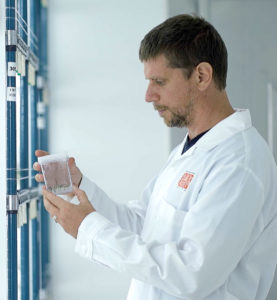
As a young boy growing up in Thailand and the Netherlands, Dr. Jan Kreuze, dreamed of becoming an astronaut. While he may never realise his childhood goal, he’s excited that his work might one day create life on the Red Planet.
For the past two decades Dr. Kreuze has dedicated himself to fighting food insecurity and feeding the world with the help of science. He holds a PhD in virology from the Swedish University of Agricultural Sciences and a Master of Science in Plant Breeding from Wageningen University. He serves as an adjunct professor at the University of Helsinki.
He joined the International Potato Center in 2003 and now heads the center’s virology and quarantine units. His daily work includes research on novel viral agents, risk assessment of introduction and spread of diseases globally, virus interactions and resistance in plants as well as applied research on the development of diagnostic methods and transgenic resistance to pest and diseases.
His team’s research on soilless systems, abiotic stresses and germplasm conservation will prove invaluable in the ongoing quest to grow potatoes on Mars.
Jan Kreuze
Sub Program Science Leader, Integrated Crop and System Research, International Potato Center
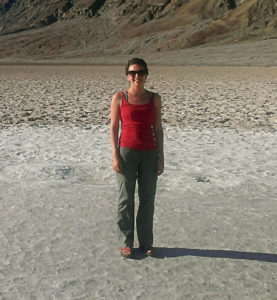
Melissa Guzman completed her B.S. in physics from Davidson College in 2011. Her undergraduate research includes the design of a surface vehicle for Europa at the Center for Space Nuclear Research in Idaho Falls. This “icy worlds” project sparked Melissa’s fascination with the potential for habitability on other planetary bodies. Melissa was also a member of the NASA Lunar and Planetary Science Academy at the Goddard Spaceflight Center where she conducted a cross-comparison of Saturn’s radio emissions as measured by the Voyager and Cassini spacecraft.
Melissa subsequently spent two years teaching high school physics in Jordan during which time she also travelled and studied Arabic. From 2014-2015, Melissa completed her M.S. in Space Studies from the International Space University in Strasbourg, France. Her research included 1) options for long-duration data storage in space, and 2) options for knowledge transfer between the space and freshwater management community in order to improve global freshwater management.
Melissa currently works as a research assistant at the NASA Ames Research Center. Her projects include restoration of the Viking Gas Chromatography Mass Spectrometry (GCMS) data and U-class plant habitat development for planetary missions.
Melissa Guzman
Researcher, Planetary Science and Astrobiology, NASA Ames
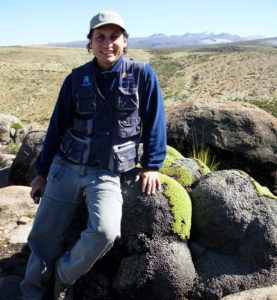
Dr. David Ramirez heads the International Potato Center’s (CIP) Crop Ecophysiology and Modeling Laboratory.
He received his doctoral degree in ecosystem and biological diversity management and restoration from the University of Alicante and his MS from the Universidad Nacional Agraria La Molina where he now serves as a visiting lecturer. He was short-listed in 2015 for the Young Promising Scientist Louis Malassis Scientific Prize and is recipient of the 2015 Santiago Antunez de Mayolo Gomero Merit Award for Research in Science.
At CIP, his team focuses on a number of critical and complex issues. These include appropriate irrigation management to allow significant water savings without tuber yield reductions; leaf traits that highlight functional plant responses to drought in cropping systems; crop resilience to help solve increasing water restrictions for agriculture in the face of increased food demand; and how vegetation structure (richness, ecological diversity and others) interacts with multifunctional ecosystem processes.
David Ramirez
Associate Scientist, Integrated Crop and System Research, International Potato Center
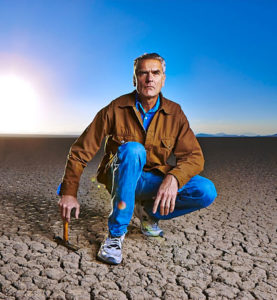
Chris McKay is a planetary scientist and astrobiologist at the NASA Ames Research Center in Mountain View, California.
In 1976, when Viking landed on Mars, Dr. McKay was a first year graduate student at the University of Colorado, Boulder. He was intrigued by the science results of the mission. There was a planet with all the elements needed to support life present in the atmosphere, with evidence of liquid water in its past, and yet there was no sign of life. Shortly after the Viking landings, in 1980, Dr. McKay began working at NASA Ames.
He has spent the last few decades doing research on planetary atmospheres, particularly the atmospheres of Titan and Mars and on the origin and evolution of life. He is a co-investigator on the Huygens probe, the Mars Phoenix Lander and the Mars Science Laboratory. He has also performed field research on extremophiles in the Death Valley, the Atacama Desert, Axel Heiberg Island and ice-covered lakes in Antarctica.
He is currently the Principal Investigator of the proposed Icebreaker Life astrobiology mission to Mars and has made many trips to Antarctica and other extreme environments to study them as possible planetary analogs.
Christopher P. McKay
Planetary Scientist, NASA Ames
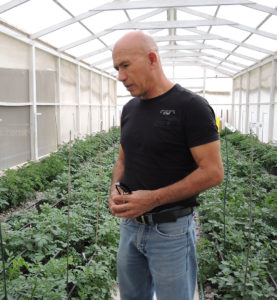
Walter Amoros grew up in the Andean highlands of Cajamarca, Perú, a city so small at the time that the countryside was just blocks away. The Cajamarca of his childhood was surrounded by small farming communities who inspired his decision to study agronomy first at the Universidad at Cajamarca and then later at la Universidad Agraria La Molina where he received a Masters of Science in Plant Breeding.
He joined the International Potato Center as a research assistant at a remote outpost in Huancayo in 1979, where he helped manage the potato germplasm collection and conducted field and greenhouse experiments. His dedication to his work helped to keep the Huancayo station open despite several attacks during the height of terrorism in the 90s.
He is currently in charge of research on potato improvement for adaptation to lowlands and tolerance to abiotic stress: heat and drought and resistance to main potato diseases such as late blight and viruses. He also works to increase the nutritional quality of the potato through genetic improvement by increasing the micronutrient concentrations of iron, zinc, and vitamin C.
When not at work Walter can be found catching waves off of the Lima coast. A passionate surfer, he took up the sport when he was 50 as a way of bonding with his son.
Walter Amoros
Senior Research Associate – Crop Improvement and Genetics, International Potato Center
“If we can grow potatoe’s on Mars, we can grow them anywhere on Earth”

“World changing”
![]()
“One giant leap for the Potato”
![]()